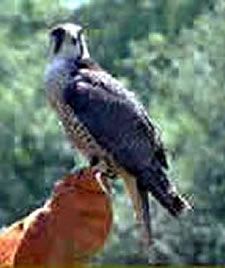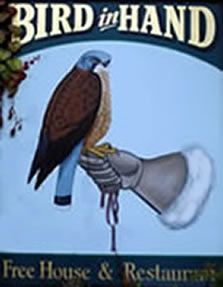A bird in the hand is worth two in the bush
It's better to have a lesser but certain advantage than the possibility of a greater one that may come to nothing.
Origin - the short version
This 16th century proverb is one of the oldest and best-known in English. It warns against taking unnecessary risks - it is better to keep what you have (a bird) than to risk getting more and ending with nothing (two birds out of your reach).
Origin - the full story
This proverb, like many others, warns against taking risks and suggests that you should keep what you have and not risk losing it by going after more. The other reading of the meaning is that it refers to medieval falconry where a bird in the hand (the falcon) was a valuable asset and certainly worth more than two in the bush (the prey). It may well be that both of these meanings were intended by the coiners of this proverb, which may go some way to explaining why it has resonated over the centuries and is still in common use.
The first citation of the expression in print in its currently used form is found in John Ray's A Hand-book of Proverbs, 1670, in which he lists it as:
A [also 'one'] bird in the hand is worth two in the bush
bird in handBy how long the phrase predates Ray's publication isn't clear, as variants of it were known for centuries before 1670. The earliest English version of the proverb is from the Bible and was translated into English in Wycliffe's version in 1382, although Latin texts have it from the 13th century:
Ecclesiastes IX - A living dog is better than a dead lion.
Alternatives that explicitly mention birds in hand come later. The earliest of these is in Hugh Rhodes' The Boke of Nurture or Schoole of Good Maners, circa 1530:
"A byrd in hand - is worth ten flye at large."
John Heywood, the 16th century collector of proverbs, recorded another version in his ambitiously titled A dialogue conteinyng the nomber in effect of all the prouerbes in the Englishe tongue, 1546:
"Better one byrde in hande than ten in the wood."http://www.phrases.org.uk/images/bird-in-hand.jpg
Left quote icon
Or, as the Czechs have it, 'a sparrow in the fist is better than a pigeon on the roof'.
right quoteThe expression fits well into the catalogue of English proverbs, which are often warnings, especially warnings about hubris or risk-taking. Some of the better known examples that warn against getting carried away by some exciting new prospect are: 'All that glitters is not gold', 'Fools rush in where angels fear to tread', 'Look before you leap', 'Marry in haste, repent at leisure', 'The best-laid schemes of mice and men gang aft agley'.
A bird in the hand is worth two in the bushThe Bird in Hand was adopted as a pub name in England in the Middle Ages and many with this name still survive.
English migrants to America took the expression with them and 'bird in hand' must have been known there by 1734 as this was the year in which a small town in Pennsylvania was founded with that name.
Other languages and cultures have their own version of this proverb, notably the Czech 'Lepsi vrabec v hrsti nez holub na strese' (A sparrow in the fist is better than a pigeon on the roof.).

